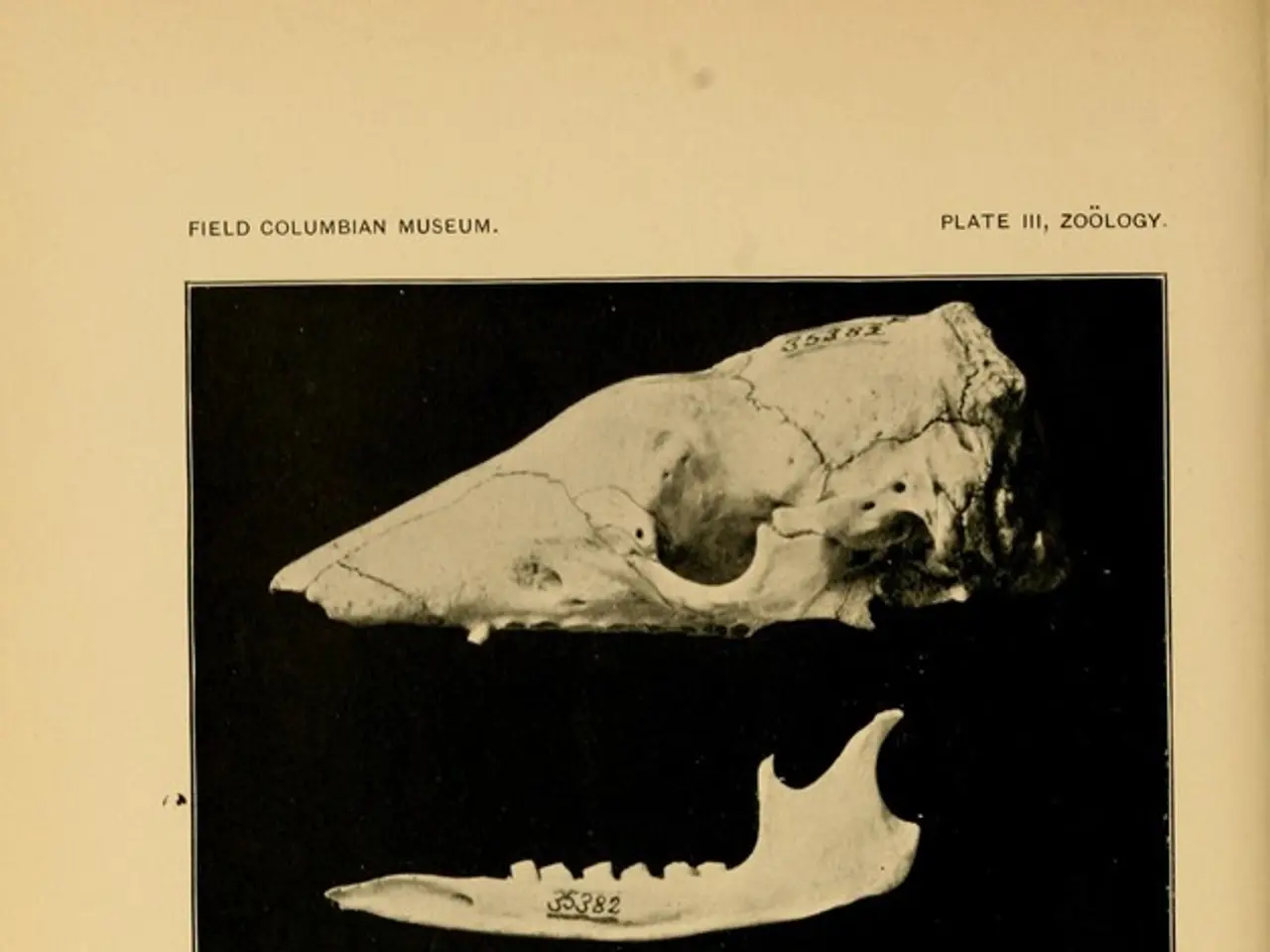Week 33 Development: Infant's Bone Structure Strengthens
As the 33rd week of pregnancy begins, a significant change occurs within the baby's body—the hardening of bones. This process, known as ossification, is crucial for the baby's development and protection.
Osteoblasts, specialised cells, play a pivotal role in this transformation. They deposit minerals such as calcium and phosphorus onto cartilage, transforming it into bone tissue. This process strengthens the baby's skeletal system, providing a protective framework for the delicate organs.
A well-balanced diet rich in essential nutrients is vital for healthy bone development in the baby. Adequate intake of calcium-rich foods such as dairy products, leafy greens, and fortified cereals can ensure a sufficient supply of these minerals. Pregnant women are recommended to consume 1000-1300 mg of calcium per day.
In addition to calcium, Vitamin D is necessary for the body to absorb and utilize calcium effectively. Vitamin D plays a vital role in calcium absorption, facilitating the transport of calcium into the bones. Sun exposure can help the body synthesize Vitamin D, but it can also be obtained from fortified milk and fatty fish.
Magnesium is another essential nutrient for bone development. Foods like nuts, seeds, whole grains, and legumes can help meet the magnesium requirements. Phosphorus works in collaboration with calcium to strengthen bones and teeth. It is found in various foods such as meat, fish, dairy products, and whole grains.
It is important to note that certain lifestyle factors can negatively impact bone health. Avoiding smoking and second-hand smoke is crucial, as smoking reduces calcium absorption. Excessive alcohol intake can decrease bone density.
As the baby continues to grow, their skeletal system helps to safeguard delicate organs like the heart, lungs, and brain. This protective role allows the baby to move and explore their environment as they grow. Drinking plenty of water throughout the day is essential for the absorption of nutrients, including calcium, which is vital for bone health.
Hormones like estrogen and progesterone, produced in higher levels during pregnancy, contribute to the hardening of the baby's bones. These hormones help regulate the mineral balance in the body, ensuring that the baby's bones develop properly.
In conclusion, maintaining a balanced diet and avoiding harmful lifestyle choices can significantly contribute to the healthy development of a baby's skeletal system. Pregnant women in Germany are generally advised to consume approximately 1000 mg of calcium per day to support their baby's bone health. By following these guidelines, mothers can help ensure their baby's skeletal system develops robustly, providing the necessary protection and support for a healthy and active life.
Read also:
- Peptide YY (PYY): Exploring its Role in Appetite Suppression, Intestinal Health, and Cognitive Links
- Toddler Health: Rotavirus Signs, Origins, and Potential Complications
- Digestive issues and heart discomfort: Root causes and associated health conditions
- House Infernos: Deadly Hazards Surpassing the Flames








